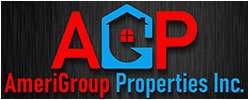Florida Condo Crisis: What Buyers and Sellers Must Know
Florida Condo Crisis: What Buyers and Sellers Must Know

Based on materials from the New York Post, this article explores the growing crisis in Florida’s condominium market, where stricter safety regulations and soaring insurance costs have led to a mass sell-off of older condos. Prices have dropped by up to 22% over the past two years, and buyers must navigate financing challenges due to over 1,400 properties being placed on Fannie Mae’s “blacklist.”
A Rapidly Shifting Landscape
Florida’s once-flourishing condominium market is now grappling with a major crisis. In recent years, a combination of new, stringent safety regulations and skyrocketing insurance costs has triggered a wave of selling among owners of older condos. Over just two years, property values in some areas have plunged by as much as 22%, dramatically altering the real estate landscape. Additionally, more than 1,400 buildings have been placed on Fannie Mae’s “blacklist,” making it exceedingly difficult for potential buyers to secure traditional mortgage financing. In this evolving environment, buyers and sellers alike must be more informed and strategic than ever before.
New Safety Regulations Reshape the Market
The collapse of the Champlain Towers South in Surfside, Florida, in 2021 was a pivotal moment that exposed serious flaws in building safety oversight. In response, Florida legislators enacted tough new laws mandating frequent inspections and mandatory repairs for aging condominium buildings, especially those located within three miles of the coastline. Buildings older than 30 years must now undergo expensive structural evaluations and, if necessary, undergo costly renovations to remain habitable. For many condo associations, these upgrades represent millions of dollars in unforeseen expenses, forcing special assessments on owners. Monthly dues in some communities have doubled or even tripled, pushing many residents — particularly retirees and middle-income families — to list their properties for sale at reduced prices.
Insurance Costs Reach Unprecedented Highs
On top of new safety requirements, condo owners and associations are being squeezed by soaring insurance costs. Many insurance companies, wary of potential disaster-related claims, have either sharply increased premiums or left the Florida market altogether. As a result, some associations have reported premium hikes of 200% to 300% within a single year. In extreme cases, buildings have been unable to secure full coverage, leaving unit owners exposed to significant risks. Without adequate insurance, mortgage lenders typically refuse to underwrite loans for those properties, limiting the pool of potential buyers to cash investors or those willing to pay inflated financing rates. This insurance crisis has further destabilized the market, deepening the cycle of falling property values and sluggish sales.
The Impact of Fannie Mae’s “Blacklist”
Perhaps the most formidable challenge for today’s condo buyers in Florida is navigating the growing list of blacklisted properties. Fannie Mae and Freddie Mac have flagged over 1,400 condominium developments as structurally unsound or financially risky, effectively cutting them off from the conventional mortgage market. Without access to traditional loans, buyers are often forced to seek high-interest, private financing options or make all-cash offers — both of which significantly reduce the pool of qualified buyers. This financing bottleneck is causing an even sharper decline in property prices for affected buildings. Sellers whose condos are in blacklisted developments must either accept deeply discounted offers or invest heavily in repairs to bring their properties back into compliance — both challenging prospects in today’s economy.
Risks and Opportunities for Buyers and Sellers
While the situation poses serious risks, there are also opportunities for savvy buyers and sellers. Buyers who have the ability to purchase in cash may find unprecedented bargains on the market, particularly in older coastal communities. However, caution is essential: before committing, buyers must thoroughly review a building’s inspection reports, reserve funding status, insurance policies, and any scheduled assessments. Hidden repair obligations can quickly turn a “good deal” into a financial burden. For sellers, the road ahead is no less complex. To attract buyers, many will need to price units competitively, offer concessions such as covering part of closing costs, or even provide private financing options. In some cases, investing in necessary repairs to improve a building’s financial health and remove it from the blacklist may be the only viable path to a successful sale.
Conclusion: Navigating a Complex Future
Florida’s condominium market is undergoing a painful but necessary transformation. The new regulations and rising insurance costs are intended to protect residents and prevent future tragedies, but they have also triggered a financial squeeze that few owners or buyers anticipated. Moving forward, anyone involved in buying or selling a condo in Florida must approach the market with caution, armed with detailed knowledge and professional guidance. Those who adapt to the new reality — prioritizing safety, transparency, and financial stability — will be best positioned to succeed in a landscape that is still evolving and will likely remain volatile for years to come.
Jack C Bharat
Minority-Owned Business Enterprise (MBE) Certified with NYC
122-15 111th Avenue, S Ozone Park, NY 11420
Email: jackcbharat@gmail.com
Phone: (718) 805-6982
Jack C Bharat has been in the Real Estate Business since 2003. As a Realtor & Developer, his experience in buying dated, distress or fixer upper and renovated them back for resale can help both buyers and sellers in their transactions. Graduated in 1999 from Queens College (CUNY) Flushing, with a Bachelors of Arts Degree and in 2012 from LaGuardia College with Goldman Sachs 10K Small Business Certificate Of Entrepreneurship, Mr Bharat is always educating himself to stay current and sometimes ahead of Real Estate Market Trends. He is currently a Notary Public in the State of NY as well.
Mr Bharat has completed real estate projects in New York-Queens & Long Island, Florida-Ocala & Coral Springs & recently (Nov 2023) 8 Units Apt in Providence, Guyana. His passion for creating projects that blend functional modern architectural design in harmony with the natural environment are evident in his most recent commercial project in Providence Guyana, currently under initial phase of construction. Mr Bharat also is the CEO of Liberty Office Supplies & Equipment, Inc. A Certified Minority Business Enterprise (MBE) with New York City & New York State. Established in May 1999, Liberty provides a wide range of office supplies and work as a sourcing company for the Federal Government by being a GSA schedule holder.
Jack is Licensed as a Real Estate Broker in State of New York and in the State of Florida. He has knowledge in both residential and commercial sales. His motto “Working with Clients to achieve their real estate goals” is what drive him to be on top of his game. He is very involved in his community especially with social and educational issues. He is the proud sponsor of a local Cricket Team, Boxing and donates his time and money to various organizations that work with children, abuse victims and the elderly. He is cited by NYC Mayor’s Office, NYS Assembly and NYC Council for his leadership role in his community.
Mr Bharat has three daughters: Alicia who graduated with her Masters Of Science in Education from Queens College and is now a STEM Teacher with the NYC Dept of Education, Kayla who has recently (2024) graduated from CUNY School for Public Health with her Masters of Public Health in Environmental & Occupational Health Sciences & works as an Environmetal Health & Safety Specialist with Sloan Kettering Cancer Ctr. and Jessica who is currently enrolled as a senior at Queens College pursing her goal as a Dentist.
Mr Bharat has completed real estate projects in New York-Queens & Long Island, Florida-Ocala & Coral Springs & recently (Nov 2023) 8 Units Apt in Providence, Guyana. His passion for creating projects that blend functional modern architectural design in harmony with the natural environment are evident in his most recent commercial project in Providence Guyana, currently under initial phase of construction. Mr Bharat also is the CEO of Liberty Office Supplies & Equipment, Inc. A Certified Minority Business Enterprise (MBE) with New York City & New York State. Established in May 1999, Liberty provides a wide range of office supplies and work as a sourcing company for the Federal Government by being a GSA schedule holder.
Jack is Licensed as a Real Estate Broker in State of New York and in the State of Florida. He has knowledge in both residential and commercial sales. His motto “Working with Clients to achieve their real estate goals” is what drive him to be on top of his game. He is very involved in his community especially with social and educational issues. He is the proud sponsor of a local Cricket Team, Boxing and donates his time and money to various organizations that work with children, abuse victims and the elderly. He is cited by NYC Mayor’s Office, NYS Assembly and NYC Council for his leadership role in his community.
Mr Bharat has three daughters: Alicia who graduated with her Masters Of Science in Education from Queens College and is now a STEM Teacher with the NYC Dept of Education, Kayla who has recently (2024) graduated from CUNY School for Public Health with her Masters of Public Health in Environmental & Occupational Health Sciences & works as an Environmetal Health & Safety Specialist with Sloan Kettering Cancer Ctr. and Jessica who is currently enrolled as a senior at Queens College pursing her goal as a Dentist.

